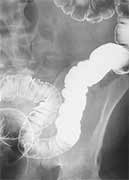Model more accurately determines risk of colorectal cancer; defines recommended screening age
THURSDAY, June 4, 2015 (HealthDay News) — Incorporation of a genetic risk score can improve the accuracy of colorectal cancer (CRC) risk determination, according to a study published in the June issue of Gastroenterology.
Li Hsu, Ph.D., from the Fred Hutchinson Cancer Research Center in Seattle, and colleagues used data from more than 12,000 participants in six studies to develop a CRC risk determination model based on sex, age, family history, genetic risk score, and history of endoscopic examinations. The model was validated in a cohort with about 1,800 trial participants.
The researchers identified a CRC genetic risk score that independently predicted CRC in the training set. Adding the genetic risk score to determination of risk based only on family history increased the discriminatory accuracy from 0.51 to 0.59 and from 0.52 to 0.56 for men and women, respectively (P = 0.0028 and 0.14, respectively). Among patients with and without a family history of CRC, a model that included a genetic risk score better determined the recommended starting age for screening. The starting age was 42 years for high-risk men (family history, genetic risk score of 90 percent); 47 years for men with no family history and high genetic risk score (90 percent); and 52 years for low-risk men (no family history, genetic risk score of 10 percent). Trends were similar for women.
“By incorporating information on CRC risk alleles, we created a model to determine the risk for CRC more accurately,” the authors write.
Copyright © 2015 HealthDay. All rights reserved.








